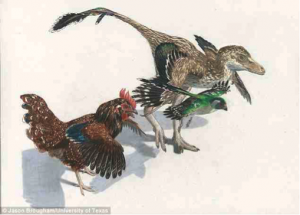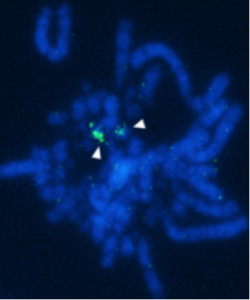CISoR director Professor Darren Griffin appeared on BBC radio 4 Today programme (as well as the BBC World Service), talking about his work on avian genomes and how change in them can lead to reproductive isolation. In the most recent work, Professor Griffin described his laboratory’s research on chromosomal change and how, of the genomes they have analysed, the chicken and turkey most closely resembles the dinosaur ancestor of birds.
Published in the journal BMC genomics the paper was led by Michael Romanov in collaboration with Drs Denis Larkin and Marta Farre of the Royal Veterinary College
The Kent research is part of a study by a consortium of leading scientists into avian or bird genomes, which tell a story of species evolution published in the December issue of the popular journal Science. The living descendants of dinosaurs were thought to have undergone a rapid burst of evolution after most dinosaur species were wiped out. The detailed family tree of modern birds has however confused biologists for centuries and the molecular details of how birds arrived at the spectacular biodiversity of more than 10,000 species is barely known.
Professor Griffin explained that bird genomes are distinctive in that they have more tiny microchromosomes than any other vertebrate group. These small packages of gene-rich material are thought to have been present in their dinosaur ancestors. The team found that the chicken has the most similar overall chromosome pattern to its avian dinosaur ancestor. The researchers also found that the fastest rate of change had occurred in the zebra finch and budgerigar, consistent with more rapid speciation events in songbirds and their relatives.
Professor Griffin pointed out, to around 5 million listeners, that features such as birdsong evolved largely as reproductive strategies to find a mate.
DNA hybridization experiment under a fluorescence microscope showing the relationship between a section of ostrich and chicken genomes.

